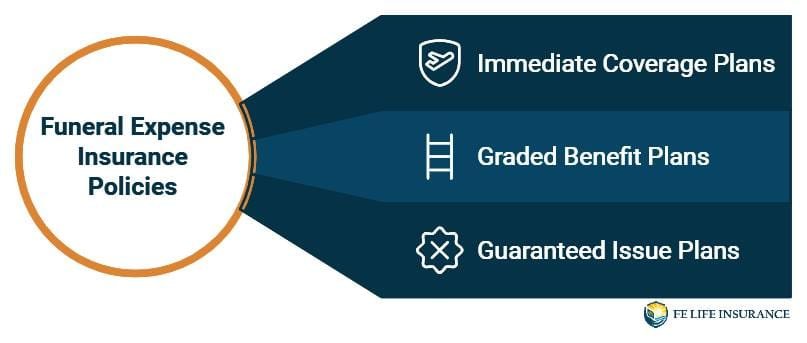Understanding Funeral Expense Insurance | A Complete Guide

American Amicable Final Expense Plans
November 19, 2024Life is full of uncertainties, but one thing we can plan for is how we protect our loved ones from unexpected financial burdens. Funeral expense insurance, often called final expense or burial insurance, is a straightforward, affordable way to ensure funeral costs are covered without adding stress to your family.
With funeral expenses often exceeding several thousand dollars, this type of insurance offers peace of mind, allowing your loved ones to focus on healing—not on managing debt or last-minute bills. Let’s explore why funeral expense insurance is more than just a plan; it’s a thoughtful gift of financial security.
What Is Funeral Expense Insurance?
Funeral expense insurance is a type of whole life insurance specifically designed to cover costs associated with funerals and related end-of-life expenses. Often referred to as burial insurance or final expense insurance, it provides financial relief to loved ones during a difficult time.
Unlike traditional life insurance, which is focused on larger payouts for long-term needs, funeral expense insurance typically has lower coverage amounts, making it more affordable and easier to qualify for. To make an informed decision, it’s essential to understand the key differences between funeral insurance and life insurance, as each serves unique financial purposes.
This differs from pre-need funeral plans, which are tied to specific funeral services. Funeral expense insurance offers flexibility, allowing your family to use the funds where they’re needed most.
By incorporating this policy into your end-of-life financial planning, you can ensure your loved ones are supported without the stress of unexpected costs.
How Does Funeral Expense Insurance Work?
Funeral expense insurance works through a simple, streamlined process:
- Choose a Coverage Amount: Select a payout amount based on estimated funeral costs and related expenses.
- Pay Premiums: Maintain the policy by paying monthly or annual premiums.
- Designate a Beneficiary: Specify who will receive the payout upon your passing.
Understanding how policies operate can help families avoid common financial planning pitfalls. For a deeper dive, explore the latest funeral planning trends from the National Funeral Directors Association, which provides insights into costs and options.
Types of Funeral Expense Insurance Policies
There are different types of funeral expense insurance policies, each designed to meet specific needs and health conditions.

- Immediate Coverage Plans: Start providing full protection as soon as the first premium is paid. This is perfect for healthy individuals who want quick coverage with no waiting period.
- Graded Benefit Plans: For those with health issues. They offer partial coverage at first, which gradually increases over a few years until full benefits are available.
- Guaranteed Issue Plans: These are available for people with significant health problems. No medical exam is required, but these plans often have waiting periods and lower initial benefits.
Benefits of Funeral Expense Insurance
Exploring the benefits of pre-planning your funeral can further enhance the financial protection and peace of mind offered by funeral expense insurance.
- Immediate peace of mind: With coverage starting right away, you can rest easy knowing your funeral expenses are taken care of.
- Simple application process: Most policies don’t require a medical exam—just a few health questions are enough to know who qualifies for final expense insurance.
- Affordable premiums: Premiums are generally low and stay the same over time, making it easy to budget for.
- Cash value accumulation: Some policies build cash value over time, giving you more flexibility and security if needed later in life.
How to Choose the Right Funeral Expense Insurance?
Choosing the right funeral expense insurance policy can seem overwhelming, but understanding your options can make the process much simpler. A comprehensive guide to selecting the ideal funeral insurance policy can help you identify the best coverage for your needs.
-
Assess Your Needs: Estimate funeral costs, medical bills, and other end-of-life expenses. This will help you determine the coverage amount you need to avoid leaving your loved ones with unexpected financial burdens.
-
Compare Policy Features: Review key features like cash value, coverage limits, and premium payments. Comparing different policies will help you find the one that offers the best benefits for your budget.
-
Work with a Trusted Provider: Choose a reputable insurance company with strong customer service and positive reviews. Research the provider’s track record to ensure they are reliable and trustworthy.
-
Consult an Insurance Professional: Speak with an insurance expert who can help you tailor the policy to your personal financial goals. They can provide insights into the best options for your unique situation.
Comparisons and Alternatives to Funeral Expense Insurance
It’s essential to understand how funeral expense insurance compares to other options:
- Funeral Insurance vs. Life Insurance: Life insurance offers larger payouts for broader financial needs, while funeral insurance focuses on specific end-of-life costs. which is why understanding the difference between funeral insurance and life insurance is important
- Funeral Insurance vs. Pre-Need Plans: Unlike pre-need plans tied to specific services, funeral insurance offers flexibility in how funds are used.
FAQs
What happens if I stop paying premiums?
If you stop paying premiums, your policy may lapse, meaning you lose coverage. Some policies offer a grace period to catch up on payments before it’s canceled.
Can I use funeral insurance to pay for unpaid debts?
Funeral insurance is designed for funeral-related costs, but in some cases, the beneficiary may use the payout to cover unpaid debts, depending on the policy terms.
Is funeral insurance worth it for younger individuals?
Yes, securing funeral insurance early locks in lower premiums and ensures financial protection for your family, even if costs rise in the future.
What is the difference between funeral cover and funeral insurance?
Funeral cover is often a prepaid plan, while funeral insurance provides a lump-sum payout to beneficiaries for funeral expenses.
What are the most expensive aspects of a funeral?
The biggest funeral expenses are the burial plot ($1,000-$5,000), casket ($2,000-$5,000), and funeral home services ($2,300-$2,500). Together, they can quickly add up, highlighting the importance of planning ahead.
Conclusion
Planning for funeral expenses is crucial to ensuring your loved ones aren’t burdened with unexpected costs. Take the time to evaluate your personal needs and explore the different funeral expense insurance options available.
By evaluating your needs, exploring policy options, and taking action today, you can provide your family with the lasting gift of financial security.




